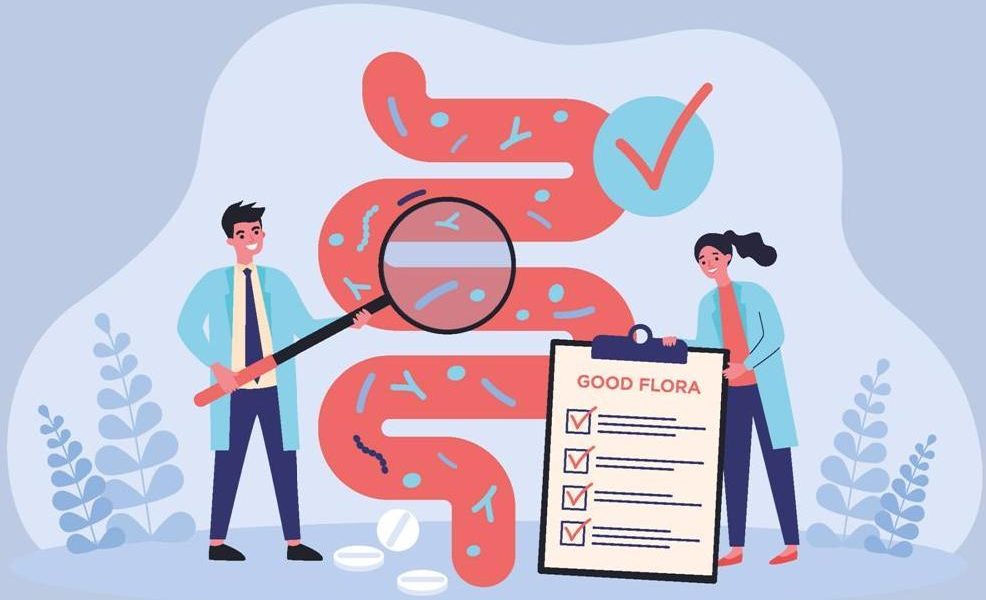With millions of people suffering with bowel problems every year, it’s about time we get comfortable talking about our poo…
Let’s face it, gut chat isn’t the sexiest topic to talk about. Just searching ‘gut’ brings up a rather disturbing mosaic of beer bellies, intestinal diagrams and, the main reason for our misconceptions, perfectly manicured hands cupping toned, soft stomachs. It’s no wonder we’re all confused. So many of us have digestive issues at any given time, but we’d rather talk about anything else than our gurgling midriff and toilet dashing. So, from this sentence on, this is where that stops. You are now entering an open ‘poo chat’ forum.
Getting down to business
The first step in diagnosing bowel problems is usually a blood or stool test, so there is nothing to be nervous about when you’re speaking to your doctor for the first time. Your stools (the technical term for poo) come in all kinds of shades, shapes and sizes, and sometimes come more frequently or sometimes, not as often. Because we’re not very good at talking about our poo, we sometimes worry unnecessarily and often we don’t tell our doctor things that they do need to know. Your body is really clever at giving you clues when something isn’t right. To understand the symptoms, you need to talk to your doctor about them. Remember, it’s about YOU, and we’re all individual, so it’s important to understand there’s no right or wrong – it’s about tuning in and getting to know your patterns so you can tell when something is up.
How often you go
Anywhere between three times a day, to once every three days is normal.
Changes to your stools
On different days and sometimes at different times of the month, such as when you’re on your period, your stool might change for a few days. This is completely normal. If you notice a change in your poo that lasts for more than a couple of weeks it is important to tell your doctor, even if this means that you notice that you’re suddenly less constipated and you don’t know why.
Red flags
If you experience any of these symptoms, you need to speak to your doctor:
Blood in your stools
If there is blood on the toilet paper, also check to see if there is any blood mixed in with the poo. This will help your doctor to know where the blood is coming from. Old blood in your stool looks like black tar, so keep an eye out for that too.
Persistent pain or bloating
This means pain and bloating that doesn’t go away when you pass a stool or pass wind, or if you are woken up in the night with pain and bloating. Also, if you notice that you get pain and bloating that builds up and that you have a sudden great urgency to go; then when you do go, you pass hard stools followed by liquid.
Sand or yellow-coloured stools
Stools that are a pale sandy colour or are yellow need to be investigated. If you’re losing weight as well, make sure you tell your doctor that too.
Stools that are frothy, foamy or stools that contain mucus
These symptoms can happen after a bug or if you’ve eaten something that didn’t agree with you, but if it doesn’t settle down in a few days, chat to your doctor.
Stools that don’t flush away
Stools that regularly block the toilet, or that float and take several flushes to get rid of, need to be reported, particularly if you can see undigested food in your stools. You also need to let your doctor know if you can see an oily residue in the toilet after you’ve been. Usually this will be yellowish in colour.
Stools that smell very bad
The question we ask patients is: ’do you think your stools are particularly foul smelling?’. If they are regularly smellier than you think they should be but you’re already eating a healthy diet, then it is worth getting this checked out.
Other things!
If you notice your poop getting thin and pencil-like or ribbony, then that needs to be reported to your doctor, as does ‘wet wind’, which is the technical term for following through when you think it was just a fart! Reporting all these symptoms can help your doctor or dietitian to decide which tests you might need to diagnose your problem. Some of these symptoms suggest an issue with how you are absorbing your food. Some suggest a problem with how your stools are moving along the bowel and some suggest inflammation. Whatever is going on in there, it needs to be investigated and your doctor might not always know the right questions to ask, so make sure you’re ready to share the details. Think about keeping a food and symptom diary to share if you find it hard to say the words out loud.
“If something is different, if something feels different, then talk to your GP”
Dr Philippa Kaye was 39 when she was diagnosed with bowel cancer. In her book, Doctors Get Cancer Too, she talks about struggling with the fact that she knew what was going to happen to her during the process:
“I looked at the screen and I knew what was coming and there were often times where I wished I didn’t know as much as I did. I didn’t start out intending to write a book, but a diary. I needed some way of getting it all out. At the time it was for me, and me alone. The book is very personal, but writing it down has helped me process the experience. If something is different, if something feels different, then talk to your GP. We might be in a pandemic, but your GP is open. Suspected cancer referrals are open. With bowel cancer we want to see if there is any blood in your poo, if you have a change of bowel habits for more than three weeks, any abdominal pain or unintentional weight-loss. Those are potential signs of abdominal cancer. It might not mean you have it for definite, but it means you have a symptom that needs to be checked. If you think something is different. Please make an appointment.”
Dr Philippa Kaye’s book, Doctors Get Cancer Too, is released on paperback on the 11th of February (Published by Summersdale), £7.91, amazon.co.uk
For more, read this Extracted from The Gut Stuff: An empowering guide to your gut and its microbes by Alana and Lisa Macfarlane (Published by Pavilion Books), £11.59, amazon.co.uk




















